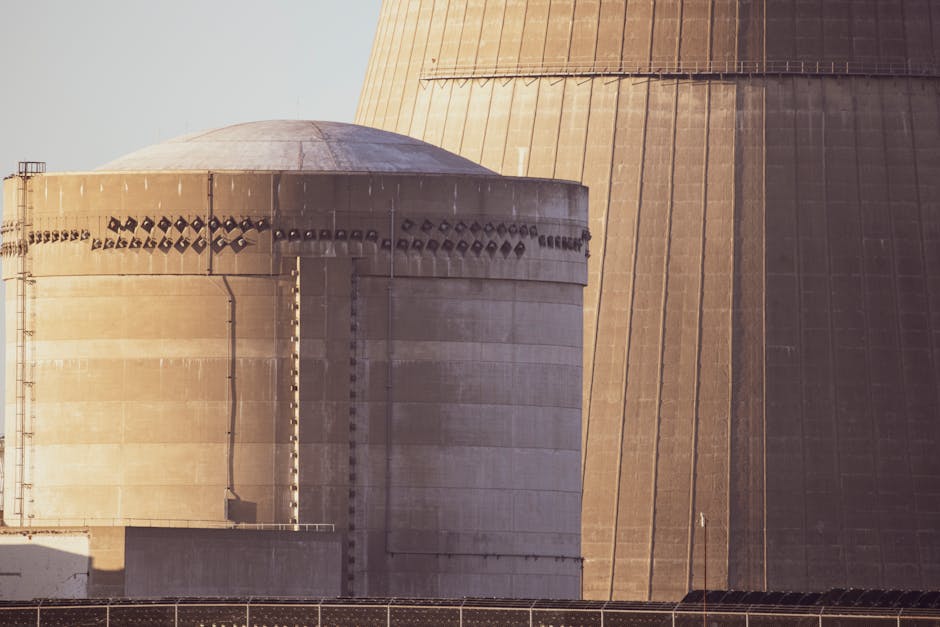The word ‘nuclear’ evokes a primal fear, a spectre of mushroom clouds and invisible poisons. For decades, the world has operated under the terrifying but stable doctrine of mutually assured destruction. Yet, in the heart of Europe, a new and deeply unsettling nuclear gamble is unfolding, one that doesn’t involve missiles in silos but soldiers on the ground and artillery shells in the air. The question on everyone’s mind is a chilling one: Is Russia’s Putin gambling with the safety of Ukraine’s nuclear stations?
Zaporizhzhia: From Power Plant to Military Fortress
The epicentre of this crisis is the Zaporizhzhia Nuclear Power Plant (ZNPP), Europe’s largest. Before the invasion, it was a symbol of Ukraine’s energy independence. Today, under Russian occupation, it has become a symbol of unprecedented peril. Reports from the International Atomic Energy Agency (IAEA) and international observers paint a grim picture. The plant, designed for peaceful power generation, has been transformed into a de facto military base. Russian troops and equipment are stationed within its perimeter, effectively using the six reactors as a shield against Ukrainian counter-offensives.
Putin’s High-Stakes Bet: A Strategy of Nuclear Blackmail
This is the core of Putin’s gamble. By militarizing a civilian nuclear facility, he presents Ukraine with an impossible choice: either cede the territory and its crucial energy infrastructure or risk firing on a nuclear plant, an act that could trigger a catastrophic accident. It’s a cynical strategy that weaponizes the international community’s deepest fears. Any mishap, intentional or accidental, would be blamed on Ukrainian “provocation,” a narrative Russia has consistently pushed.
The Risk of a Meltdown: Echoes of Chernobyl
The risks are almost too great to comprehend. A modern nuclear power plant is not a nuclear bomb; it won’t explode in the same way. The danger lies in a meltdown. These facilities rely on a constant flow of electricity to power cooling systems that keep the reactor cores stable. Shelling has repeatedly damaged the external power lines connecting ZNPP to Ukraine’s grid, forcing it to rely on fragile backup lines and emergency diesel generators.
If those cooling systems fail, the reactor core can overheat, leading to a meltdown and a potential release of radioactive material into the atmosphere. The memory of Chernobyl in 1986, which rendered a vast swathe of land uninhabitable and spread a radioactive cloud across Europe, looms large. A disaster at Zaporizhzhia, with its six reactors, could dwarf that tragedy, creating consequences that would respect no borders.
Why Is Russia Gambling with Ukraine’s Nuclear Safety?
From the Kremlin’s perspective, the potential rewards for this high-risk strategy are threefold.
1. Energy Control: It grants them control over a significant portion of Ukraine’s power supply, a powerful lever to pressure Kyiv.
2. Military Shield: It serves as the ultimate military shield, complicating Ukrainian military planning and counter-offensives in the region.
3. Psychological Warfare: Perhaps most importantly, the constant threat of a nuclear incident keeps Ukraine and its Western allies on edge, sowing fear and creating pressure to negotiate on Moscow’s terms.
The IAEA, led by Director General Rafael Grossi, has repeatedly called for a demilitarized safety zone around the plant, a plea that has so far fallen on deaf ears. Their inspectors on site act as a crucial, albeit limited, deterrent.
A Dangerous Precedent for Global Security
For the rest of the world, this is more than a distant European conflict. It sets a terrifying precedent. If using a nuclear plant as a military pawn becomes a successful tactic, it redraws the rules of modern warfare. For a world grappling with climate change and looking to nuclear power as a clean energy source, a major incident would shatter public trust for generations.
Ultimately, Putin’s actions at Zaporizhzhia are a high-stakes bet where the collateral is global safety. He is gambling that the fear of a nuclear disaster is a more powerful weapon than any tank or missile. The world can only watch, and hope, that this reckless wager does not result in a loss for all of humanity.




